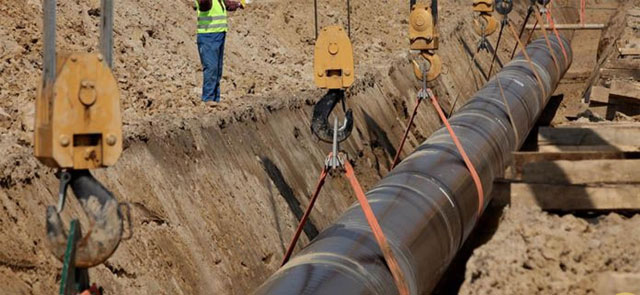
Kampala, Uganda | THE INDEPENDENT | The government is not concerned about the decision of some international banks to stay away from the financing plans for the East African Crude Oil Pipeline.
Several banks in France, where the lead investor in the project, Total, is based, have stated that they will not be part of the arrangements to finance the pipeline that will run from Western Uganda to Tanzania’s Tanga Port. The French banks include BNP Paribas, Société Générale and Crédit Agricole, as well as Credit Suisse of Switzerland, ANZ of Australia and New Zealand and Barclays, according to Bank Track.
Bank Track and Reclaim Finance are organisations that say they are pushing for responsible financing of projects worldwide.
South Africa-based Standard Bank, China’s ICBC and the SMBC of Japan are lead advisors for the EACOP financing and are facing pressure from groups like Bank Track, Reclaim Finance and Energy Voice.
With most of the banks that have so far distanced themselves being from France, the activists hope it will have a greater impact on the financing plans.
The Permanent Secretary of, Ministry of Energy and Mineral Development, Robert Kasande, says the campaign is nothing new and doubts it will have an impact.
The other companies in the project are CNOOC of China, Uganda National Oil Company and Tanzania Petroleum Development Corporation.
Since the two countries signed agreements earlier this month allowing the investors to proceed with the projects, dozens of regional and international NGOs have been calling on the governments, the companies and the lenders to stop the project.
They say the oil and gas activities pose a threat to the ecosystem mainly in western Uganda as they are located in protected areas.
The pipeline is opposed for the fact that apart from running through populated areas displacing residents, the heated pipeline is also planned to go through the world heritage site, Serengeti National Park in Tanzania.
Others groups, like Friends of the Earth, have sought legal action against Total, the lead investor in the oil and gas, alleging human rights violations.
The activists have created a website, www.stopeacop.net which is specifically to name banks and their position regarding the project and also to mobilize people to sign against it.
Stanbic Bank, the East African subsidiary of Standard Bank, in a statement issued last month, noted that they are continuing with the advisory role and that they have policies that ensure best practices regarding the projects they finance.
“Standard Bank Group is committed to responsible investment and to assessing and managing our environmental, social and governance (ESG) risks comprehensively. We follow a thorough, multi-stage process when making decisions whether or not to fund infrastructure projects such as the EACOP,” says the statement.
The bank adds that this process requires it to adhere to all relevant international standards and guidelines as well our internal policies, which cater for the possible effect of the project they finance.
“These policies include Standard Bank’s fossil fuels lending policy, covering all potential lending to coal, oil and gas activities across all of our regions of operation.
Regarding the EACOP project, there has been no material change in Standard Bank’s approach to this project since our last engagement,” says the statement. A Communications Officer at Total E&P Uganda promised to get back to us, but a day later, she had not, despite the reminders.
Crédit Agricole is the largest shareholder in the French asset management company, Amundi, which is also the second-largest shareholder in Total.
The Bank is also one of the biggest sources of finance for Total, having provided $7.3 billion to the oil company between 2016 and 2020, according to a report on the website www.energyvoice.com
After the signing of the agreements in Kampala two weeks ago, the EACOP General Manager Martin Tiffen said they had no plans of abandoning the oil projects in Uganda, saying their operations follow the Ugandan laws and the guidelines of the International Finance Corporation of the World Bank.
*******
URN
 The Independent Uganda: You get the Truth we Pay the Price
The Independent Uganda: You get the Truth we Pay the Price



